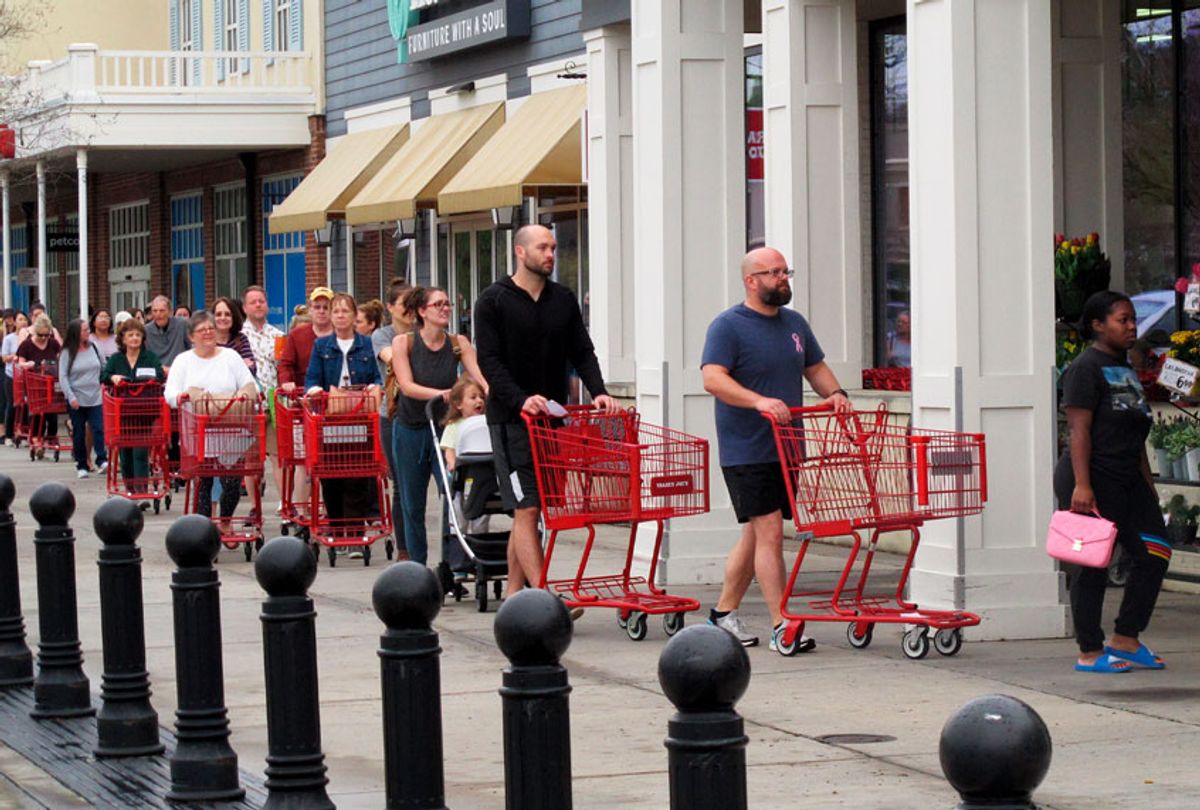The global coronavirus pandemic is radically altering the business strategy for every industry on Earth, from corner bodegas to oil producers to Wall Street's biggest banks. Particularly hard-hit businesses include cosmetologists, movie theaters, and air travel; grocery stores, as an essential business, are doing okay, even if their employees aren't. But perhaps surprisingly, not all industries are hurting in the pandemic recession — and even some mom-and-pop businesses are thriving in these socially distanced times.
Doug Cartwright, founder and CEO of smartphone app The Daily Shifts, said he noticed a big increase in interest in his app, which helps people establish intentional daily habits based in mindfulness. Cartwright sees this moment as an opportunity to invest more in marketing.
"As soon as the chaos hit about three weeks ago, I started seeing a significant increase in downloads in my app," Cartwright said. "So what I decided to do was actually double down, and I doubled my ad spend, and at one point we saw a two-thousand percent increase in our downloads."
The app costs $3.99 a month, and includes various free offerings like an e-book and a five-part video challenge to help people "live their best week." Cartwright also offers an online course which used to cost $1,000, though he lowered the price to $99 amid the pandemic.
"I want to genuinely help people," he said. "What I'm seeing right now is a lot of people that are working at home don't have their normal routine and so they're starting to dip or are starting to get into bad habits, when I initially started building the app it was to help people feel more calm and more mindful, and what I'm realizing is that the app is actually helping people build really beautiful, healthy routines to keep them engaged."
Certainly, not every business can afford to lower the prices of their products right now. But then again, not everyone's business model is aimed at easing anxiety and trauma. Also, being a remote business, and the only employee — with the exception of third-party vendors — there isn't much overhead. Amanda Ballantyne, the executive director of Main Street Alliance, told Salon in an interview that businesses where employees can work from home have a greater chance of weathering this turbulent economic climate.
"Tech firms might not be as hard hit, other types of businesses where goods and services can be sold from home seem to be making a pivot pretty effectively," Ballantyne told Salon. "But again we don't have data yet to really parse those numbers yet, so I don't want to speculate too much."
Market analysts have pointed out that apps like Zoom Video Communications Inc. have been thriving in the past few weeks, as more people are relying on video calls to stay in touch and socialize safely. Likewise, some investors are looking to companies like Clorox as a "safe haven" stock. Analysts suspect Peloton Interactive is well-positioned to survive, too, as people are buying fitness bikes to work out at home. According to Bloomberg News, fitness-tracking apps are in good shape too.
Strangely, online dating apps are reportedly seeing more users on their platforms, too. According to a recent filing by the Match Group, there's been an uptick in conversations happening on Tinder and length of conversations are longer.
"This pandemic and resulting isolation has reminded us of the deep need for human connections, people's adaptability and their willingness to use the tools and technology at hand to stay connected," the letter stated. "Users across the world are turning to our products to maintain connections, reduce loneliness and boredom and check on people in faraway places."
In the offline world, alcohol sales are booming. C. Vaile Wright, director of clinical research and quality in the Practice Directorate for the American Psychological Association, told the Washington Post that people are turning to drinking to cope.
"We are seeing more people using alcohol as a way to cope with the anxiety and stress and uncertainty of this situation," she said. "I think a lot of people use it to numb out. While that's certainly a very human response to what's going on right now, it's generally not the best way of managing stress."



Shares